
Arthur Blake, known as Blind Blake, was an American blues and ragtime singer and guitarist. He is known for recordings he made for Paramount Records between 1926 and 1932.
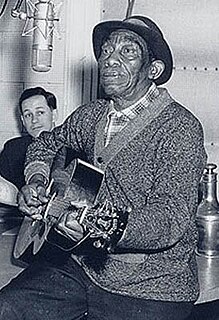
John Smith Hurt, better known as Mississippi John Hurt, was an American country blues singer and guitarist.
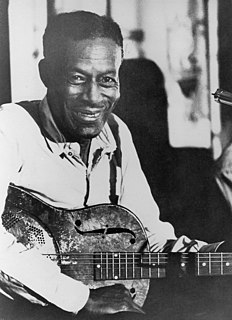
Edward James "Son" House Jr. was an American delta blues singer and guitarist, noted for his highly emotional style of singing and slide guitar playing.
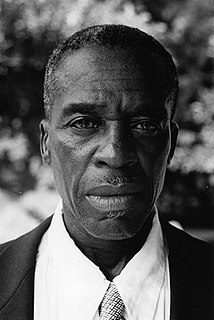
Nehemiah Curtis "Skip" James was an American Delta blues singer, guitarist, pianist and songwriter.

Booker T. Washington "Bukka" White was an American Delta blues guitarist and singer.
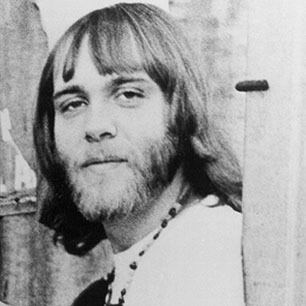
Henry Charles Vestine a.k.a. "The Sunflower", was an American guitar player primarily known as a member of the band Canned Heat. He was with the group from its start in 1966 to July 1969. In later years he played in local bands but occasionally returned to Canned Heat for a few tours and recordings.

The Transfiguration of Blind Joe Death is a 1965 album by American fingerstyle guitarist and composer John Fahey. Originally issued in a hand-lettered edition of 50, it was Fahey's first album to be released by a label other than his own Takoma Records. As with all of Fahey's independently released early albums, it had little critical recognition upon release. The album has grown in stature since its reissue on CD in 1997 and is now highly regarded critically. It was Fahey's fourth album to see release, though after his fifth album, The Great San Bernardino Birthday Party & Other Excursions, was labeled Guitar Vol. 4, reissues of The Transfiguration of Blind Joe Death were subtitled John Fahey, Volume 5.
Richard K. "Dick" Spottswood is an American musicologist and author from Maryland, United States who has catalogued and been responsible for the reissue of many thousands of recordings of vernacular music in the United States.
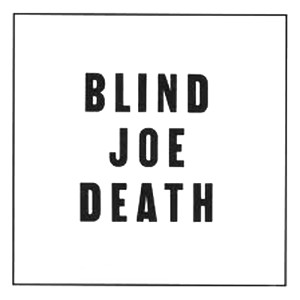
Blind Joe Death is the first album by American fingerstyle guitarist and composer John Fahey. There are three different versions of the album, and the original self-released edition of fewer than 100 copies is extremely rare.

Alan Christie Wilson, nicknamed "Blind Owl", was an American musician, best known as the co-founder, leader, co-lead singer, and primary composer of the blues band Canned Heat. He sang and played harmonica and guitar with the group live and on recordings. Wilson was the lead singer for the group's two biggest U.S. hit singles: "On the Road Again" and "Going Up the Country".

John Aloysius Fahey was an American fingerstyle guitarist and composer who played the steel-string acoustic guitar as a solo instrument. His style has been enormously influential and has been described as the foundation of the genre of American primitive guitar, a term borrowed from painting and referring mainly to the self-taught nature of the music and its minimalist style. Fahey borrowed from the folk and blues traditions in American roots music, having compiled many forgotten early recordings in these genres. He would later incorporate 20th-century classical, Portuguese, Brazilian, and Indian influences into his work.
Robbie Basho was an American acoustic guitarist, pianist and singer.
William Henry Barth was an American blues guitarist who, along with John Fahey and Henry Vestine, located 1930s blues great Skip James in a hospital in Tunica, Mississippi in 1964.

The Voice of the Turtle is the seventh album by American guitarist John Fahey. Recorded and released in 1968, it is considered one of his more experimental albums, combining not only folk elements, but shreds of psychedelia, early blues, country fiddles, ragas, and white noise. The album had many reissues with various track listings, jacket designs and mismatched titles.
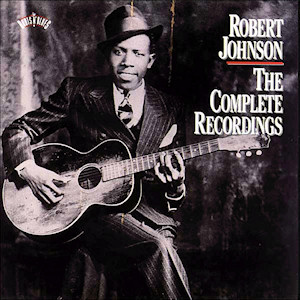
The Complete Recordings is a compilation album by American Delta blues musician Robert Johnson. The 41 songs were recorded in two sessions in Dallas and San Antonio, Texas for the American Record Company (ARC) during 1936 and 1937. Most were first released on 78 rpm records in 1937. The Complete Recordings, released August 28, 1990, by Columbia Records, contains every recording Johnson is known to have made, with the exception of an alternate take of "Travelling Riverside Blues".

Death Chants, Breakdowns & Military Waltzes is a 1963 album by American fingerstyle guitarist and composer John Fahey. Various sources show either a 1963 or 1964 original release. It was Fahey's second release and the first to gain a national distributor.
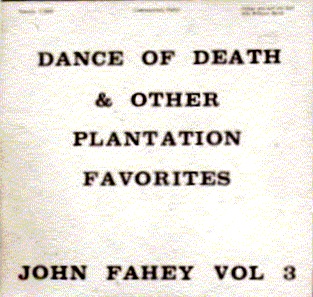
The Dance of Death & Other Plantation Favorites is the third album by American fingerstyle guitarist and composer John Fahey, released in 1965. The 1999 reissue contained four previously unreleased tracks.

America is an album by American folk musician John Fahey, released in 1971. Originally intended to be a double album, it was released as a single LP. The unreleased material was subsequently restored in later CD and vinyl reissues.

Railroad is an album by American fingerstyle guitarist and composer John Fahey, released in 1983. It was originally released as Railroad 1 by mistake. The Shanachie Records reissue is correctly labeled as Railroad. It was his last principal recording for Takoma Records, the label he founded in 1959.
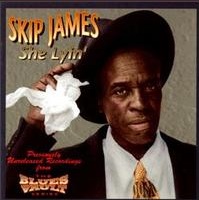
She Lyin' is the second studio album by American blues singer Skip James, recorded in 1964 and released in 1993. It was originally recorded for Takoma Records and was James' first recording since his rediscovery in 1964.


















